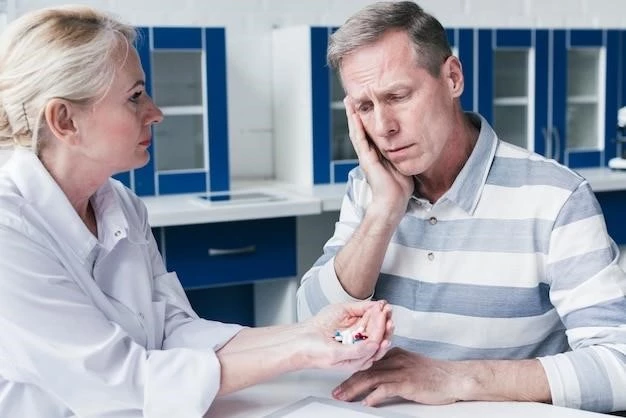Overview of Bonnemann-Meinecke Syndrome
Learn about the rare genetic disorder‚ its symptoms‚ causes‚ diagnosis‚ treatment options‚ prognosis‚ ongoing research‚ and support resources.
Description of Bonnemann-Meinecke Syndrome
Bonnemann-Meinecke Syndrome is a rare genetic condition characterized by muscle weakness‚ joint stiffness‚ contractures‚ and delayed motor development. Individuals may also experience respiratory issues‚ feeding difficulties‚ and spinal deformities. This syndrome can vary in severity‚ and early diagnosis and intervention are crucial for managing symptoms and improving quality of life. Genetic counseling and multidisciplinary care are essential for individuals and families affected by this complex condition.
Symptoms and Signs of Bonnemann-Meinecke Syndrome
Recognize the signs such as muscle weakness‚ joint stiffness‚ delayed motor development‚ respiratory issues‚ feeding difficulties‚ and spinal deformities.
Common Symptoms of Bonnemann-Meinecke Syndrome
Common symptoms of Bonnemann-Meinecke Syndrome include muscle weakness‚ joint stiffness‚ contractures‚ delayed motor development‚ respiratory issues‚ feeding difficulties‚ and spinal deformities. Individuals may also exhibit poor weight gain‚ scoliosis‚ hip dislocation‚ and difficulty swallowing. Early recognition of these symptoms is crucial for timely intervention and management of the condition. Close monitoring by healthcare professionals‚ physical therapy‚ occupational therapy‚ orthopedic interventions‚ and respiratory support are essential components of care for individuals with Bonnemann-Meinecke Syndrome.
Causes and Risk Factors of Bonnemann-Meinecke Syndrome
Understand the genetic causes and risk factors associated with Bonnemann-Meinecke Syndrome to better grasp the condition’s origins and predispositions.
Genetic Causes of Bonnemann-Meinecke Syndrome
Bonnemann-Meinecke Syndrome is primarily caused by mutations in the CHRNG gene‚ which encodes a subunit of the fetal acetylcholine receptor. This mutation leads to abnormal neuromuscular junction development‚ resulting in the characteristic muscle weakness and other symptoms of the syndrome. Understanding the genetic underpinnings of the condition can help in accurate diagnosis‚ genetic counseling‚ and potential targeted treatment approaches in the future.
Diagnosis and Genetic Testing for Bonnemann-Meinecke Syndrome
Learn about the diagnostic procedures and genetic testing available to determine and confirm Bonnemann-Meinecke Syndrome‚ aiding in personalized treatment plans.
Diagnostic Procedures for Bonnemann-Meinecke Syndrome
Diagnosing Bonnemann-Meinecke Syndrome involves a thorough physical examination‚ assessing muscle tone and function‚ along with genetic testing to identify mutations in the CHRNG gene. Additional tests such as electromyography‚ muscle biopsies‚ and imaging studies may be conducted to further evaluate the extent of muscle weakness and associated issues. Collaborating with geneticists‚ neurologists‚ and other specialists can aid in confirming the diagnosis and developing a comprehensive care plan tailored to the individual’s needs.
Treatment Options for Bonnemann-Meinecke Syndrome
Explore management strategies including physical therapy‚ occupational therapy‚ orthopedic interventions‚ respiratory support‚ and multidisciplinary care for improved quality of life.
Management Strategies for Bonnemann-Meinecke Syndrome
Effective management of Bonnemann-Meinecke Syndrome involves a multidisciplinary approach. Physical therapy can help improve muscle strength and function‚ while occupational therapy focuses on daily living skills. Orthopedic interventions may address contractures and deformities. Respiratory support can assist with breathing difficulties. Regular monitoring and care coordination by specialists are essential to address individual needs and enhance overall well-being. Adequate support systems and therapeutic interventions play a vital role in optimizing the quality of life for individuals with Bonnemann-Meinecke Syndrome and their families.
Prognosis and Life Expectancy of Individuals with Bonnemann-Meinecke Syndrome
Understand the prognosis and life expectancy of individuals with Bonnemann-Meinecke Syndrome for informed decision-making and ongoing care planning.
Prognosis for Bonnemann-Meinecke Syndrome Patients
The prognosis for individuals with Bonnemann-Meinecke Syndrome varies depending on the severity of symptoms and individual response to treatment. Early intervention‚ comprehensive care‚ and ongoing support from a dedicated healthcare team can significantly impact outcomes. While the condition is lifelong and may present challenges‚ appropriate management strategies and therapies can help improve quality of life and functional abilities. Research into potential treatments and interventions continues to advance‚ offering hope for enhanced care and support for patients and families affected by Bonnemann-Meinecke Syndrome.

Research and Clinical Trials for Bonnemann-Meinecke Syndrome
Stay informed about ongoing research and clinical trials to explore innovative treatments and enhance care for individuals with Bonnemann-Meinecke Syndrome.
Ongoing Research and Innovations
Ongoing research for Bonnemann-Meinecke Syndrome focuses on understanding the molecular mechanisms of the condition‚ exploring potential targeted therapies to address muscle weakness and other symptoms‚ and investigating gene therapies. Innovations in genetics and neurology pave the way for personalized approaches to treatment. Clinical trials offer promising avenues for testing new interventions and improving outcomes. Staying updated on the latest advancements in research can empower patients‚ families‚ and healthcare providers to make informed decisions and participate in cutting-edge treatment options.
Support Resources for Patients and Families Affected by Bonnemann-Meinecke Syndrome
Discover supportive services and organizations offering assistance‚ education‚ and community for individuals and families impacted by Bonnemann-Meinecke Syndrome.
Supportive Services and Organizations
Several organizations provide support and resources for individuals and families affected by Bonnemann-Meinecke Syndrome. These can include access to genetic counseling‚ information on the latest research and treatment options‚ and opportunities for connecting with others facing similar challenges. Support groups and online communities offer emotional support and valuable insights. By engaging with these services and organizations‚ individuals and families can find guidance‚ empowerment‚ and a sense of community in navigating the complexities of Bonnemann-Meinecke Syndrome.
